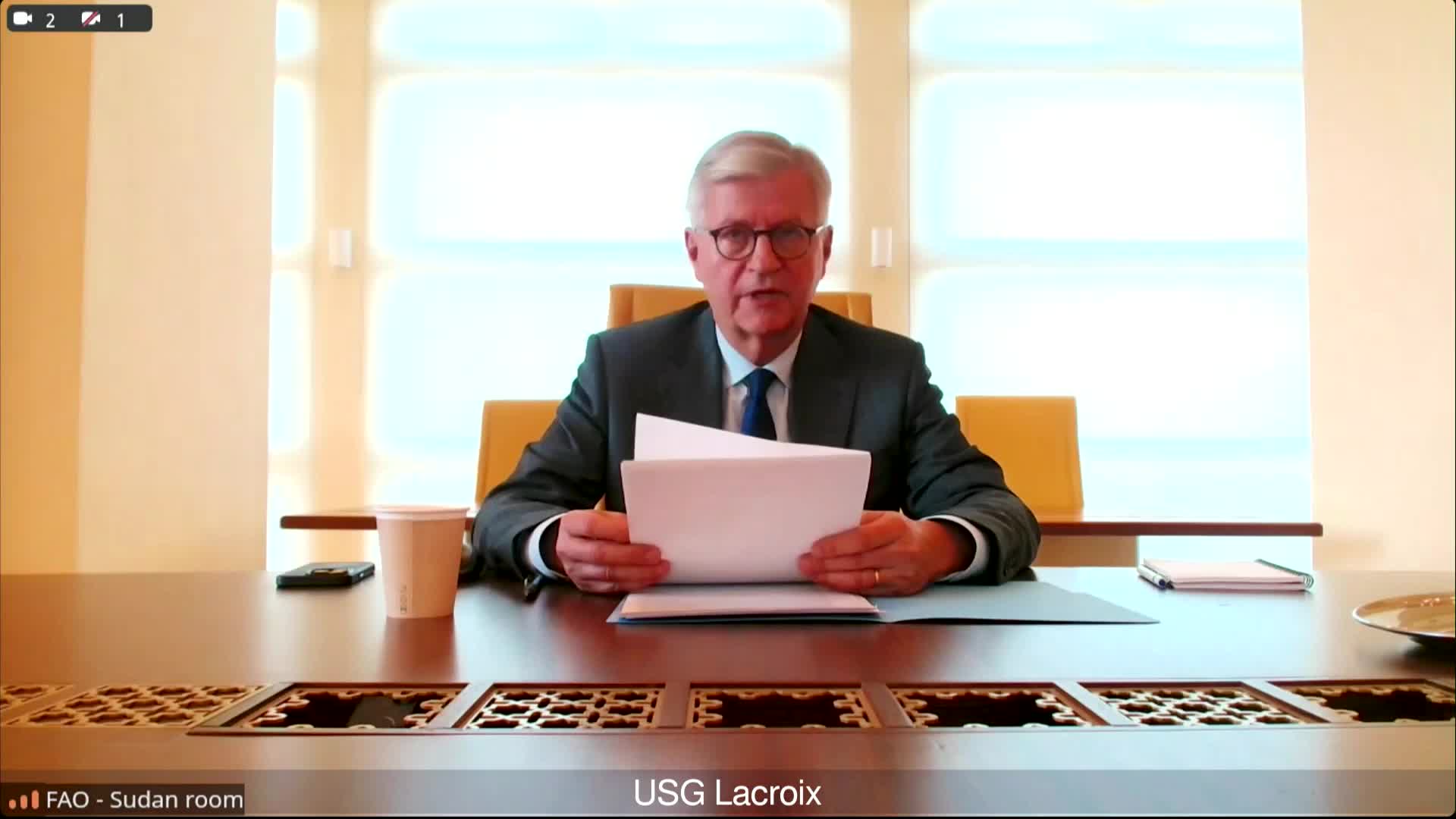UN warns UNMISS contingency plan, funding shortfalls could weaken protection of civilians as humanitarian crisis deepens
Get AI-powered insights, summaries, and transcripts
Subscribe
Summary
A UN briefing said contingency measures — including base closures and staff reductions — are being implemented in UNMISS because of a liquidity crisis, and urged government flexibility to avoid severe compromise to the mission amid a catastrophic humanitarian situation.
Speaker 1, a United Nations official, told the Security Council that the humanitarian situation in South Sudan is ‘‘catastrophic,’’ reporting that more than 7,500,000 people face acute food insecurity, 28,000 are at risk of famine, flooding has displaced over one million people and more than 1,200,000 returnees and refugees from Sudan have crossed into South Sudan.
He said humanitarian partners continue to deliver assistance despite insecurity and rising bureaucratic impediments, and urged the government to lift access restrictions, guarantee the safety of aid workers and hold to account those involved in taxing humanitarian workers.
The speaker warned that a financial liquidity crisis facing the United Nations is constraining peacekeeping operations. He said the contingency plan applied across UN peacekeeping is being implemented in UNMISS and ‘‘entails the closure of certain field offices and bases, the repatriation of uniformed personnel ... and reductions of national and international staff.’’
During his recent visit to Juba he informed government officials, including President Salva Kiir, of the measures and emphasized the financial imperatives; days later the mission received a government document outlining conditions that the speaker described as impractical and ‘‘pose a serious threat to the viability of the contingency plan and potentially to the mission itself.’’ He warned bluntly that ‘‘the future of that mission is totally at stake.’’
The speaker asked the Security Council to press for respect of stages-of-forces agreements, guarantees for the safety of UN personnel and assets, and greater government flexibility so the mission can continue to prioritize protection and humanitarian facilitation. No formal Council decisions were announced during the briefing.
